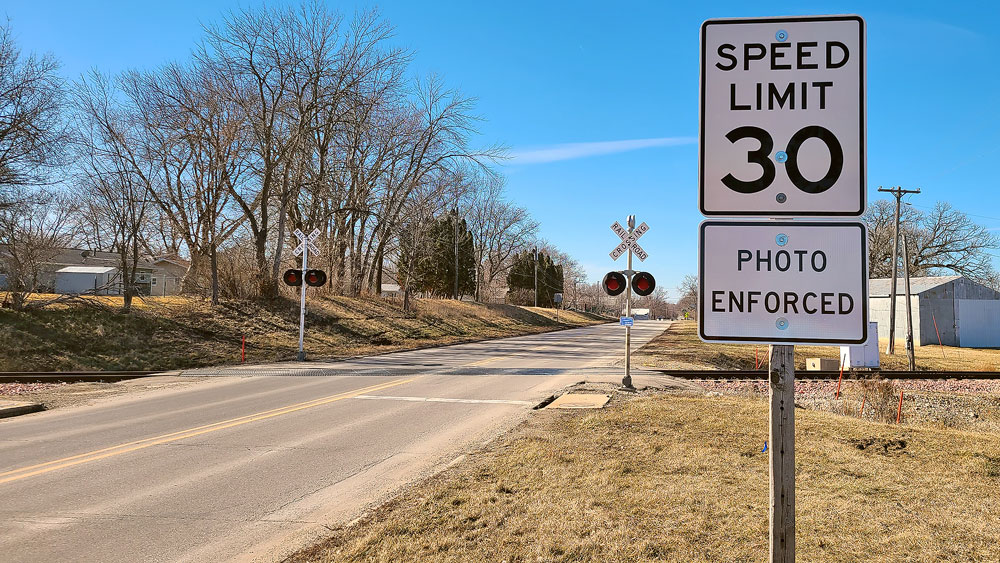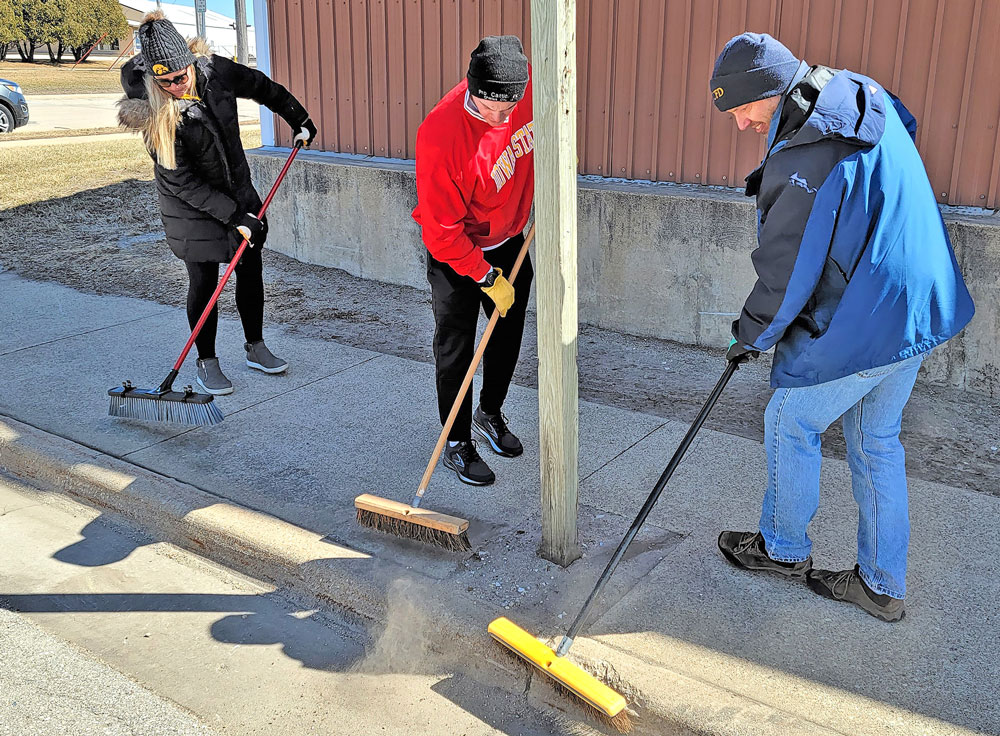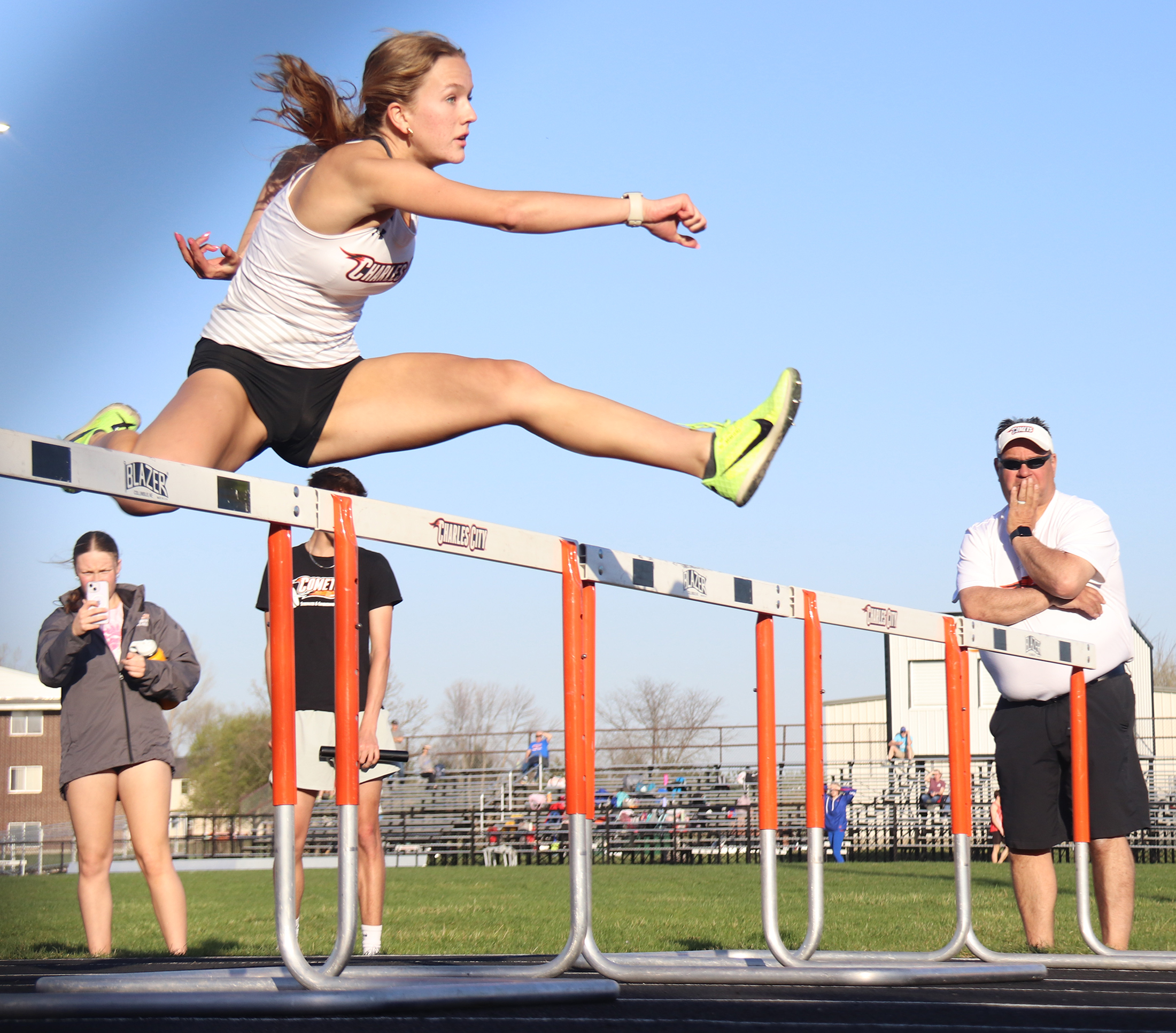Kinnick movie based on Charles City native’s book; Lidd calls upcoming production ‘a dream come true’
By James Grob, jgrob@charlescitypress.com
Eighty years after he won the Heisman Trophy, the story of Iowa Hawkeye football legend Nile Kinnick will be told on the silver screen, thanks in large part to a native of Charles City.
“It’s kind of a dream come true,” said author Tom Lidd.
Lidd, a former Charles City resident and lifelong Hawkeye fan, is a retired insurance agent who now lives in Cedar Rapids. In 2008, he published a historical novel about Kinnick, simply entitled “Nile.”
Ten years later, that book is the basis for the movie “The Ironmen,” which will chronicle the lives of the Hawkeyes who served in World War II. Lidd said the hope is to start filming the movie next spring, and for the film to hit theaters in 2020. A movie studio has committed to helping make and direct the film, as well as supplying a large portion of a targeted $15 million budget, with the rest coming through other fundraising efforts.
“The issue right now is raising money,” Lidd said. “There are a couple of well-known directors and actors who are interested, but it’s really coming down to financing.”
Lidd said there are some donors who are close to pulling the trigger. Once they do, the idea is to premiere the movie in Kinnick Stadium in Iowa City, the night before the first Hawkeye football game of the 2020 season.
Kinnick won the 1939 Heisman Trophy and was a consensus All-American. He died during a training flight while serving as U.S. Navy aviator in World War II. He was inducted into the College Football Hall of Fame in 1951, and the University of Iowa renamed its football stadium in his honor in 1972. Kinnick Stadium is one of just two college football stadiums to be named after a player. The other, coincidentally, is Iowa State’s Jack Trice Stadium in Ames.
“The record for a movie premiere audience is 44,000 people,” Lidd said. “They think with the Iowa Hawkeye fan base, they can get 45,000 or more in Kinnick, easy.”
Lidd said that Iowa athletic director Gary Barta is behind the film, and the film has also received a lot of attention from former Iowa football players who went on to play in the NFL.
Lidd, 66, graduated from Charles City High School in 1970. He is the brother of Mike Lidd, who owns Lidd & Cordray Clothing in Charles City. Copies of the book “Nile” will be available for purchase at the store on Tuesday.
The two-year process of writing, editing and revising the book started for Lidd in 2006. Lidd said, as he was writing, he always had a movie in mind.
“In my mind, I was seeing the scenes play out on screen as I was writing them,” he said.
Filmmaker Joe Heath, an Iowa City native, is the executive producer of “The Ironmen.” Heath has been pitching the idea of a Kinnick film since he’s been in the movie business, and a few years ago, he came across Lidd’s book and thought it would be perfect for the big screen.
“It is very ‘Rudy’ — an inspirational, family film,” Heath said in the Daily Iowan newspaper last week. “I think it will be a movie that sticks with people, especially with people around here.”
Heath and Lidd worked together to whittle the the 452-page novel into a two-hour script. That script was then tweaked by established writer and director Nicholas Meyer, a University of Iowa alumnus who was nominated for an Oscar for his work on “Star Trek II: The Wrath of Khan.” Meyer has written several other scripts for the small and big screen, including two other Star Trek movies, a James Bond movie, and movies such as “Fatal Attraction,” “Sommersby,” “The Informant,” and “The Seven-Per-Cent Solution.” The latter also earned an Oscar nomination, and he’s been nominated for three Emmys and published eight books.
“I was asked to write the screenplay, and I based it on the novel and tried to include the main things,” Lidd said. “Nicholas Meyer then took it and he did a great job, he basically left everything the same, but put meat on the characters’ bones.”
Lidd said that the extent of his communication with Meyer has been a number of emails back and fourth. When Meyer sent him the first draft of the screenplay, Lidd couldn’t help himself — he made corrections.
“It felt kind of funny, correcting the grammar of an Oscar-nominated writer, but he thanked me,” Lidd said.
Although he doesn’t have a resume like Meyer’s, Lidd is not a novice when it comes to writing. Lidd said it was his wife, Jane Kelly, who first suggested that he write a book about Kinnick. Kelly is a U.S. Circuit Judge of the U.S. Court of Appeal for the Eighth Circuit. The two have been together since 2003, and married in 2014.
Lidd said that he used several sources as he did research for “Nile,” but there were two books in particular that stood out. One is “A Hero Perished, The Diary of Selected Letters of Nile Kinnick,” by Paul Bander.
“Through that, I really got a sense of Kinnick’s personality,” Lidd said, and added that the other book was written by Al Coupee, a former Hawkeye quarterback and teammate of Kinnick’s who went on to a career in broadcasting.
“That book really gave the back story on everybody on the team, and there were a lot of humorous anecdotes,” Lidd said.
He’s written two screenplays since he retired from the commercial insurance business in 2014.
“Actually, I have more confidence in them being turned into movies than I had when I wrote ‘Nile,’” he said.
Both of the scripts are works of historical screenplays that deal with racism. One, called “Scott vs. Sandford,” pertains to the Dred Scott Decision in 1857, in which the U.S. Supreme Court ruled that a slave who resided in a free territory was not entitled to freedom. Lidd called it the “worst U.S. Supreme Court decision ever.”
The other screenplay is sports-related. It’s about a basketball team at a segregated high school in Indiana in 1955 — the team’s star player was future NBA great Oscar Robertson.
That interest in sports likely stems from Lidd’s youth in Charles City. He called Charles City “a great place to grow up.” At one time, Lidd held two school basketball records, most points in a game (41) and most field goals in a game (19). Both of those records stood for 23 years.








Social Share